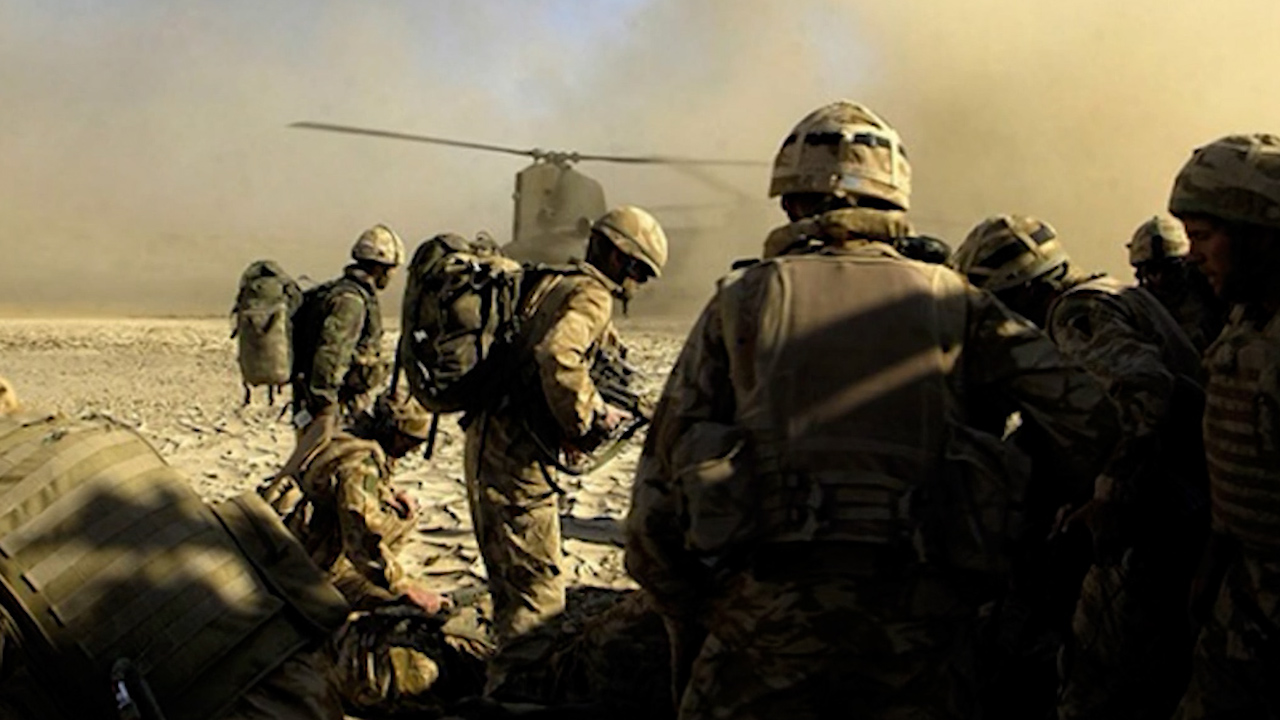
Sitrep: What formative effect did Op Herrick have on veterans 10 years on?

Operation Herrick, the UK's codename for military actions in Afghanistan, was a formative experience for those who served in the Middle East, shaping who they are today.
October marks 10 years since the UK left Helmand and Camp Bastion, the main camp for British Forces in Afghanistan.
And a number of veterans have shared how the deployment shaped them on this week's Sitrep podcast – which analyses the top defence stories of the week and is available wherever you get your podcasts.
One of those, Stuart Tuttle, a colonel in the Parachute Regiment, was Commanding 3 Para – the "first battalion and, in fact, battlegroup that went into Helmand Province in 2006".
"It… gives me a touchstone of faith that whatever I do and have done in the rest of my life, it was the most rewarding thing I ever did," he said.
"I've had a good life and I was very lucky to come back from Afghanistan untouched in a way that many were not.
"That is the most remarkable, commendable thing I think that I've ever done. And that's because of the people I was with."
He also acknowledged the high points such as "flying into battle, air assaulting into the Sangin Valley, seeing the enormous sort of gallantry and self-sacrifice, which was often heart-rending".
But there were also low points.
"I zipped far too many people into body bags," he said. "I had to have far too many conversations with family members."
Another veteran, Sally Orange, served in Afghanistan as the Officer Commanding the deployed medical rehabilitation team, based primarily at Camp Bastion.
Ms Orange said she was "incredibly privileged and proud to have served on Op Herrick", adding that the deployment had helped her throughout her life.
"If I'm having a difficult time, I just think back to some of those patients who sadly didn't make it or have had very life-changing injuries," she said.
"And yet they can become my determination… if I'm struggling with things."
Patrick Hennessey was 24 when he deployed to Afghanistan for the first time, describing it as "very raw".
"It was one of those conflicts that kind of prints itself on the collective psyche, particularly of the Army," he said.
However, he also said he "matured a lot from the experience of it".
"I think that's something that a lot of people who've been in kind of prolonged, intense combat experience," he said.
"But it also, I think, makes you optimistic.
"The worst day I have at the office is never going to be as intense as the most intense day I had in Afghanistan."
Liz McConaghy, also known as Chinook Crew Chick, said her time in Afghanistan shaped her as a person.
"I genuinely believe you cannot understand true love until you've seen true loss," she said.
"The gravity of those emotions have certainly stayed with me to this day and [it] certainly shaped how I feel about the value of life."
Sitrep's resident expert, Professor Michael Clarke, said in "real warfare like that… everybody gives up a little bit of their sanity".
"Going in and out of Afghanistan, as I did entirely as a civilian, I never once talked to people in the British military who didn't think they were making a difference, who weren't doing their best, not just to do the military job, but to do other things as well.
"And it does reinforce your faith in human nature.
"Somebody said you don't feel you don't know true love until you've seen it on an operation. I know exactly what she means."
These veterans all have their shared service in common and now an Afghan Veterans Community is being established.
One of the founders, Jonny Ball, served in Afghanistan and told the Sitrep podcast his time in the country "was a formative experience".
"It's where most of my social friends from the Armed Forces community, there was commonality around Afghanistan," he said.
"I think it was our generation's conflict."
Now, he is trying to make sure veterans of the conflict have a support network they belong to so they have a sense of belonging after their service in Afghanistan.
"When Op Pitting happened, I did feel a sense of shame," he said.
"The manner in which we withdrew from Afghanistan was very difficult.
"But also I was immensely proud, really proud of my colleagues and our actions on the ground in Afghanistan.
"We can actually regain the narrative around the sense of pride and every single… that's what I hope to achieve, to bring us all together, pull people out the shadows and connect this community."
You can listen to Sitrep wherever you get your podcasts, including on the Forces News YouTube channel.









